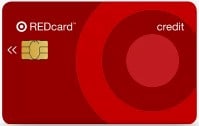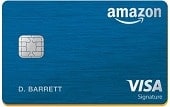Store-branded credit cards are a funny bunch.
Some store-branded credit cards are regular credit cards that you can use anywhere, they just have the retailer’s logo on it. Others are cards that can only be used within the store itself. They’re commonly referred to as open-loop (usable anywhere) and closed-loop (only in that family of stores).
When it comes to the benefits, most closed-loop cards are glorified rewards programs with a charge card associated with it. The open-loop cards are more like regular credit cards with cashback, rewards, and other perks.
One of the first credit cards I ever got was from Structure (yes, that dates me! Structure was acquired by Sears in 2003, Sears filed for bankruptcy in 2018). I was in college and the 10% off my purchase was enough of an incentive. Back then, credit card rewards were not as rich as they are today. These days, the best bonus credit cards will offer you hundreds of dollars!
As retailers have evolved and realized a 10% discount isn’t going to entice anyone, they’ve started rolling out more benefits. Retailers know how much money a credit card can add to their bottom line. They’ve started pairing discounts and cashback when those cardholders spend money at their stores and elsewhere.
Twenty years ago, store credit cards were mostly hot garbage.
Today, there are some worth getting and here they are:
Table of Contents
Amazon Rewards Visa Signature Card
If you shop a lot at Amazon and Whole Foods Market (i.e. if you have Amazon Prime), the Amazon Rewards Visa Signature Card is a must-have.
You get 3% back at Amazon.com and Whole Foods Market, 2% back at restaurants, gas stations, and drugstores; and you get 1% back everywhere else. You even get a $50 Amazon gift card when you are approved, there is no purchase requirement. The only “downside” is that the percentages you get back are in the form of Amazon.com credit… which is fine because that’s where you’ll be spending it anyway!
It’s a Visa Signature card which means you get all the perks of Visa Signature including no foreign transaction fees and a whole host of travel insurance perks like emergency assistance, lost luggage reimbursement, baggage delay insurance, and travel accident insurance. This is on top of purchase protections like rental car CDW, purchase protection, extended warranty, and roadside dispatch.
Here’s a full review of the Amazon Rewards Visa Signature Card and worht a look if you’re considering this card.
There’s no annual fee on this card.
Costco Anywhere Visa Card by Citi

It’s no secret that I love Costco.
Back when Costco partnered with American Express, you had to get their co-branded credit card if you wanted to charge your purchase. Now that they’ve moved to partnership to Citi, you can use any Citi credit card.
The Costco Anywhere Visa Card is still a solid card though. You get 4% cashback on gasoline, 3% at restaurants and eligible travel purchases, 2% at Costco, and 1% everywhere else. The gasoline cashback rate is limited to $7,000 per year in purchases then it drops to 1%.
The cashback comes as a cash rebate check in your February statement, which is easy to miss if you don’t pay attention. You can cash it at any Costco register.
As for card perks, it has everything you’d expect from a Citi card including purchase protection (damage and theft protection, extended warranty).
No annual fee.
Target RedCard Credit Card

Target is one of the largest retailers in the United States and their Target RedCard Credit Card is great because it gets you 5% off most Target and Target.com purchases. It’s not cash back or points – it’s 5% off your purchase. It’s an instant coupon and you don’t have to do a thing. The discount doesn’t include some purchases like prescriptions, their clinic, eye exams, gift cards, and some in-store restaurants… but it’s pretty much everything else. You also get 15% off baby essentials too.
If that weren’t enough, you get free shipping from Target.com plus extended returns (an extra 30 days on top of the regular return period for that item type). One some items, you get free two-day shipping.
The only downside is that you can’t use the card anywhere else but there’s no annual fee. Want to learn more? We have a full breakdown of the Target RedCard, both the credit card and debit card versions (they’re the same).
Capital One Wal-Mart Rewards Mastercard

The Capital One Wal-Mart Rewards Mastercard gets you 5% back at Walmart.com and in the store when you use the Walmart Pay app for the first 12 months, then it drops to 2%. You also get 2% at restaurants and travel purchases followed by 1% everywhere else. The rewards are in the form of points that you can apply to your statement or redeem for gift cards and the like.
If you do a lot of shopping at Wal-Mart, then getting 5% for the first year and 2% afterward is a decent discount. The card has no annual fee and you can use it anywhere, which is a nice perk. It’s not the greatest card out there but it does give you rewards, which most of the “rest” (listed below) don’t.
The Rest
After those cards, there are a lot of retailers that offer cards with some type of discount at the store or rewards program after an initial discount.
The Kohl’s Charge Card is more like a rewards card and less like a credit card. You get 35% off your first purchase, which is pretty big for a first purchase discount. With the card, you get access to different savings events during the year, a special anniversary offer, plus you get discounts that you can stack with their Kohl’s Cash program. Once you spend $600, you become a Most Valued Customer and that gets you a birthday gift as well as free shipping events.
The TJX Store Card gives you 10% off your first purchase after you get the card. This is available online and in-store. Then, you get 5% in rewards when you shop in a store in the TJX family of stores, which includes T.J.Maxx, Marshalls, HomeGoods, Sierra, and Homesense stores. This is a card issued by Synchrony Bank. (if you’ve ever seen SYNCB in your credit report, it’s one of these partnership cards)
The Gap Visa Credit Card will get you 5 points for every dollar you spend in a Gap brand store or online and 1 point anywhere else. You redeem the points for credit at Gap brand stores, which now includes companies like Athleta, Old Navy, and Banana Republic. You also get 20% off your first purchase too as well as 10% at Gap and Gap Factory stores. No annual fee. The only reason why I listed this in “The Rest” is because of the retailer – Gap only sells clothing whereas the others on the list sell a wide array of products. Also, the points are only redeemable at Gap.
Why You Might Want A Store Credit Card
Beyond the more obvious financial reasons (rewards, discounts, cashback), one of the biggest reasons has to do with credit. Store credit cards often have more restrictions than your average unsecured credit card. They have lower credit limits, may only be usable at the one retailer, but this represents an opportunity for those with less than stellar credit scores. If you are looking to build credit, you could start by getting a store credit card because they’re more likely to approve you.
One of my first credit cards was one from Structure, which no longer exists, and it had a mere $500 credit limit. I had just a year or two or credit history but they approved me right at the register. I used that card, along with an AT&T Universal Card, to help establish a credit history.
Sometimes a store card can be a means to an end, rather than the end itself.
Are They Worth Getting?

We reached out to Dr. Michael Levin, Associate Professor of Marketing at Otterbein University, to get his opinion on why store cards have improved and whether they offer a good benefit to consumers. He teaches marketing analytics, retail management, and sales so we felt he would be able to offer up some valuable insight.
Q. Store credit cards have come a long way in the last ten or fifteen years. They used to only offer 10% off your first purchase and access to a line of credit – why do you think retailers have so aggressively expanded their card benefits?
Dr. Levin: It builds repeat business. The returning customer represents a more profitable customer. The retailer spent a lot of money to attract initially the customer to the store and/or website. The cost to get the customer to return decreases steadily with each return visit. The store card marks a way to build repeat business.
Also, the retailer is getting a trove of data through those cards and that data is inexpensive compared to buying that data from another vendor. The retailer can then refine offers to build foot traffic and make that customer’s visit more profitable for the retailer.
For the card issuer, those store cards carry higher interest rates compared to cards issued by credit unions or other lower perk cards. The issuer makes a lot more money on the customer’s balance.
Q. Do you think store credit cards offer a good value to the regular consumer?
Dr. Levin: Those cards only make sense if the customer is going to shop a lot at a particular retailer. If the customer only goes to Costco or Target on a once a month basis, then a Costco or Target card makes little sense. There is no reason to build rewards at a retailer where you are not using the reward or getting sweetened offers to keep you shopping there.
Q. What do you think consumers should consider before opening a store-branded credit card?
Dr. Levin: Customers who want a credit card should ask why they need a card. There are only cards with zero interest for 6 or 12 months for initial purchase or purchases. If you want to buy a thousand-dollar screen for the living room, then look at one of those cards and treat it as an interest-free loan. If you are going to pay the card over time, then look at a line of credit instead. If you *really* need a credit card and are going to carry a balance, then get a card from a credit union. The customer will always pay more in interest than they will gain in rewards.
Conclusion
It depends a lot on the card, the offer, and the store that the card is associated with.
If you are building credit, a more restrictive store-branded credit card might make sense because of it’s lower credit requirements.
If you are established, it comes down to the rewards they offer.
Finally, remember that more isn’t always better. There is such a thing as having too many credit cards.





Leave a Comment: